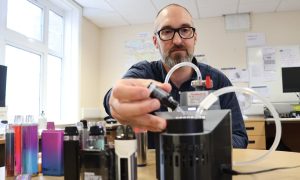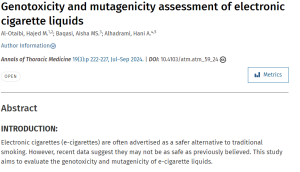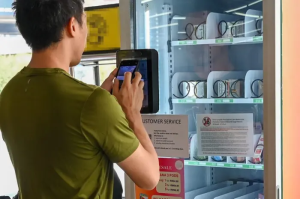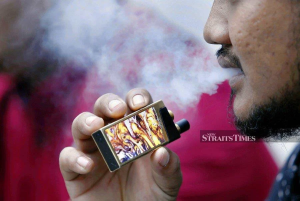
“HIGH” and unable to respond to his teacher’s questions, a student was expelled after the police were called in.
The boy from a secondary school in the Petaling district was found to have added heroine into the vape liquid, Universiti Malaya (UM) Nicotine Addiction Research and Collaborating Group (NARCC) deputy coordinator Assoc Prof Dr Nur Amani Ahmad Tajuddin shared.
Studies have shown that adolescents are experimenting by adding in illicit drugs, such as cannabis, magic mushrooms, ketamine, codeine and even tar, in vape liquids, she said.
“Our schools must be equipped to discuss the dangers of smoking and vaping.
“We must go beyond the textbook and incorporate interactive sessions, real-life stories, and peer-led discussions,” said Dr Nur Amani, who heads the group’s HEBAT (Henti, Elak, Basmi Asap Tembakau) programme.
Originally dubbed the UM Generational Endgame (GEG) programme when it was launched in 2015, the two-pronged initiative is aimed at grooming tertiary students to become GEG trainers so that they can inspire school students to become agents of change among their peers and family members. Last year, the GEG programme was given a new moniker, HEBAT.
To date, a total of 260 undergraduates from UM, Universiti Kebangsaan Malaysia, and International Islamic University Malaysia have been trained.
They have since conducted outreach activities in 429 secondary schools in the Klang Valley, benefiting a total of 860 students (see infographic).
Of the 860 students aged between 13 and 17, 15.7% or 135, admitted to either vaping, smoking or doing both.
“This is a marked increase from 9.8% in 2017,” she noted.
Next year will see Universiti Teknologi Mara undergraduates, as well as school teachers and counsellors, joining the programme, Dr Nur Amani said.
“HEBAT will be expanded to include teachers as we’ve found that most lack knowledge of vaping and its effects on students.
“We want to help teachers manage the vaping problem in their schools, as well as to help the students quit,” she said, adding that based on the feedback of the programme participants, tobacco control outreach activities need to be conducted more frequently in schools.
Young vapers and smokers, she said, need to get involved in sports, or spend time at the gym to keep away from the habit.
“The students are aware that vaping and smoking are a waste of money so we need to suggest ways for them to spend it wisely, for instance to save up so that they can buy a handphone or a tablet, instead of wasting it on ecigs and cigarettes,” said Dr Nur Amani.Higher education institutions or schools keen on participating in the HEBAT programme can email [email protected].
Why students smoke/vape:
62% Peer influence
18% Relieve stress
14% Pleasure
6% Influenced by parents or teachers who smoke or vape

Source: The Star










